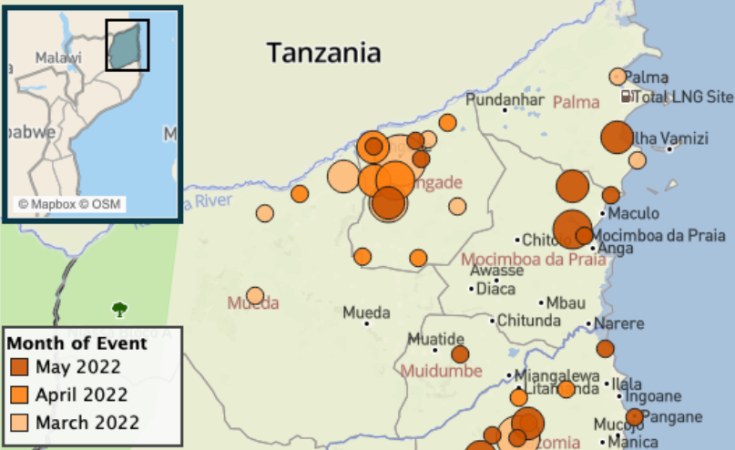Cape Town — The insurgents who are waging a low-intensity civil war in northern Mozambique are able to move around with apparent freedom, despite the successes of a multi-national military operation which has drawn personnel from 25 nations into the conflict.
This is the conclusion reached by the civil society observer group, Cabo Ligado*, in its latest analysis of the progress of the war.
Reporting on the recent movement of insurgents into new districts in Cabo Delgado province, the group says "despite the wave of surrenders reported in recent weeks, insurgents' structures seem to be resilient...
"The pattern of violence across the province shows that when forces attempt to clear insurgents from a district, they simply withdraw and appear elsewhere. The fact that insurgent groups can still circulate around Cabo Delgado with apparent freedom also reflects a poor level of strategic coordination between international forces that are each responsible for their own operational areas."
The biggest foreign military contingent helping Mozambique's army to combat the insurgency is a 2,000-strong force from Rwanda. Since it arrived last August, pro-government forces have regained control of the coastal districts of Palma and Mocimboa da Praia, which are of key strategic importance to Mozambique's development of massive natural gas reserves.
The Cabo Ligado report says the Rwandans have forced the insurgents south and west, but that Mozambican and Southern African Development Community (SADC) forces are not providing adequate back-up operations in those areas.
The veteran academic analyst, Joseph Hanlon, noted recently that in addition to the Rwandan force, the SADC has a military mission which includes combat troops from 10 Southern African countries: Angola, Botswana, the Democratic Republic of Congo, Lesotho, Malawi, Namibia, South Africa, Tanzania, Zambia and Zimbabwe. The European Union has deployed a training mission comprising personnel from 12 countries, and the United States also has a training mission.
Cabo Ligado also says a new incursion into the Ancuabe district of Cabo Delgado, coming as it did outside the area of operation of Mozambican, Rwanda and SADC forces, "represents a huge concern for the Mozambican government".
While the Mozambican government describes the insurgents as "jihadist terrorists" and the U.S. government has branded them as "ISIS-Mozambique", local analysts and civil society groups emphasize the contribution of local grievances and longstanding central government neglect of the north as strong contributing factors to the conflict.
Hanlon suggests that the Frelimo government's views that the war is a result of "entirely external destabilisation" and that "no political and economic changes are required" are "dubious beliefs by key parts of the Frelimo leadership."
* Cabo Ligado describes itself as a "conflict observatory" jointly established by Mozambique's Mediafax and Zitamar News services and the international Armed Conflict Location & Event Data Project (ACLED).


